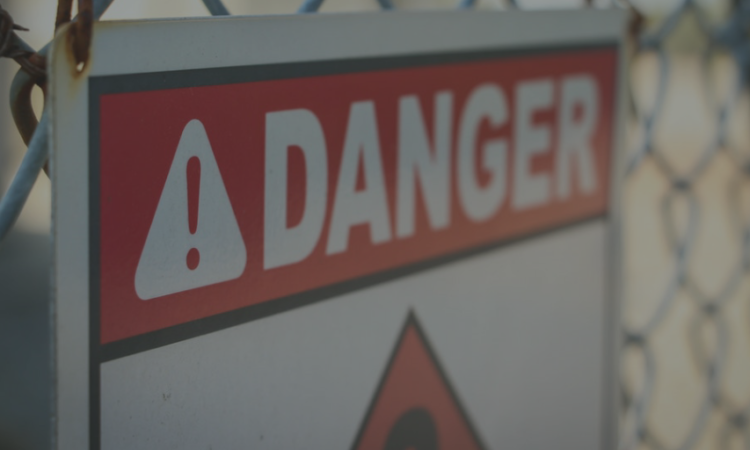Counseling Notes: Trauma & Introversion
Counseling Notes are a series of short posts that are often taken from Twitter threads that I’ve done on various topics. The goal of Counseling Notes is to take the short snippets (tweets) I make about Soul Care issues and compile them into one place.
(1) While providing trauma informed soul care, I have often cared for people who have been deeply discouraged by the “loss of their personality” as it relates to how they engage community. It is very common for extroverted people to become introverted after developing trauma.
(2) Often, many don’t even realize their shift in personality is trauma related, they just assume they are simply not who they once were & the lack of grasping the “why” itself can be deeply discouraging. For many, comfort has been found in understanding a common but often neglected reason for the personality shift. I would too share some thoughts about it:
(3) One of the most distinguishing factors of being “extroverted” and “introverted” is in the way the energy is regulated. For extroverts, they are energized by community interaction while for introverts their energy is drained by community interaction.
(4) This is important to understand. It’s not that introverts don’t like people, desire community, or even enjoy being around others. That idea is a serious misunderstanding about introversion. Many if not most introverts are actually enjoy and even long for community. However, for introverts, community interaction normally drains their energy capital while for extroverts it charges it.
(5) How does trauma play into this? Especially trauma as the result of abuse? Well, trauma leads to challenges in energy regulation. A traumatized person spends a ton of energy trying to navigate a day not being triggered & maintaining appearance of mental & emotional stability while they are struggling internally.
(6) Think of it this way. Let’s use an illustration. This illustration is not based on actual data, but is more or less just using a general principle. Imagine 3 people at a gathering and their energy levels beginning at 100% as they engage.
Extrovert- Their energy is charged as they interact with others.
Introvert – Their energy depletes as they interact with others.
In this illustration, both people begin an encounter with others with their energy level at 100%. One person is going to talk to everyone, be super engaged, and at times maybe even the life of the party. The other might lean on a wall, be extremely calculated in who they talk to, and balance interaction out so that they leave as soon they get to the point where their energy is just enough to get home and go not sleep.
(7) Now consider a traumatized person’s energy:
- Being present in a crowded space filled with potential triggers [Energy -20%]
- Smiling despite internal pain (mental, emotional, & spiritual) [Energy -20%]
- Laughing as social etiquette while internally sad [Energy -20%].
- Various other issues that require additional energy.
(8) Introversion, for those with trauma who were once extroverted, does not necessarily mean that their personality has changed, it can also simply mean that their minds & bodies just have new challenges regarding how it handles energy regulation. Those who carry trauma as well as those who love & support them must be aware as well as sensitive to this dynamic.
(9) People who carry trauma who have to navigate crowded spaces must listen to their bodies. Their bodies may be telling them, “we can’t handle church today” , “that gathering is too much right now”, or “don’t answer that phone call” not merely b/c of personality but b/c they are overwhelmed. The amount of energy their mind, body, and spirit has spent in healing for that day may leave them in a state where they now lack the capacity for further energy depletion. In fact, placing themselves in an environment that requires such depletion when they are already fully depleted enhances the chances of being triggered in that space and/or having some kind of breakdown. Their bodies may have had enough and not listening to their bodies can cause further pain. Likewise, those who love & support survivors or people with trauma can demonstrate their support by not pressuring people to enter into spaces when they may be showing signs of already being fully depleted.
(10) I think there are ways that both introverts & extroverts can maximize the benefits of their personality expression that comes thru via grown in self-awareness regarding how their personality type works. When it comes to traumas impact on personality dynamics; I think self-awareness can serve as an aid in healing process.
(11) There is absolutely hope for those who find themselves overwhelmed by community, who at the same time long for it. It can be deeply discouraging for people who were once extroverts to now find themselves the far other side of the spectrum. it is important for these people to know that their personality shift may not mean they are no longer an extrovert in the sense of their foundational personality, but rather they are a survivor who is needing to navigate spaces differently as they work through the healing process. Introversion does not necessarily mean someone is an introvert. Also, introverts who become extroverted after trauma doesn’t necessarily mean their personality shift is absolute either. Sometimes, extroversion can be a defense mechanism used by an otherwise introverted person to cover up insecurities or a feeling of lacking safety [That’s a whole other story].
Twitter: @KyleJamesHoward


